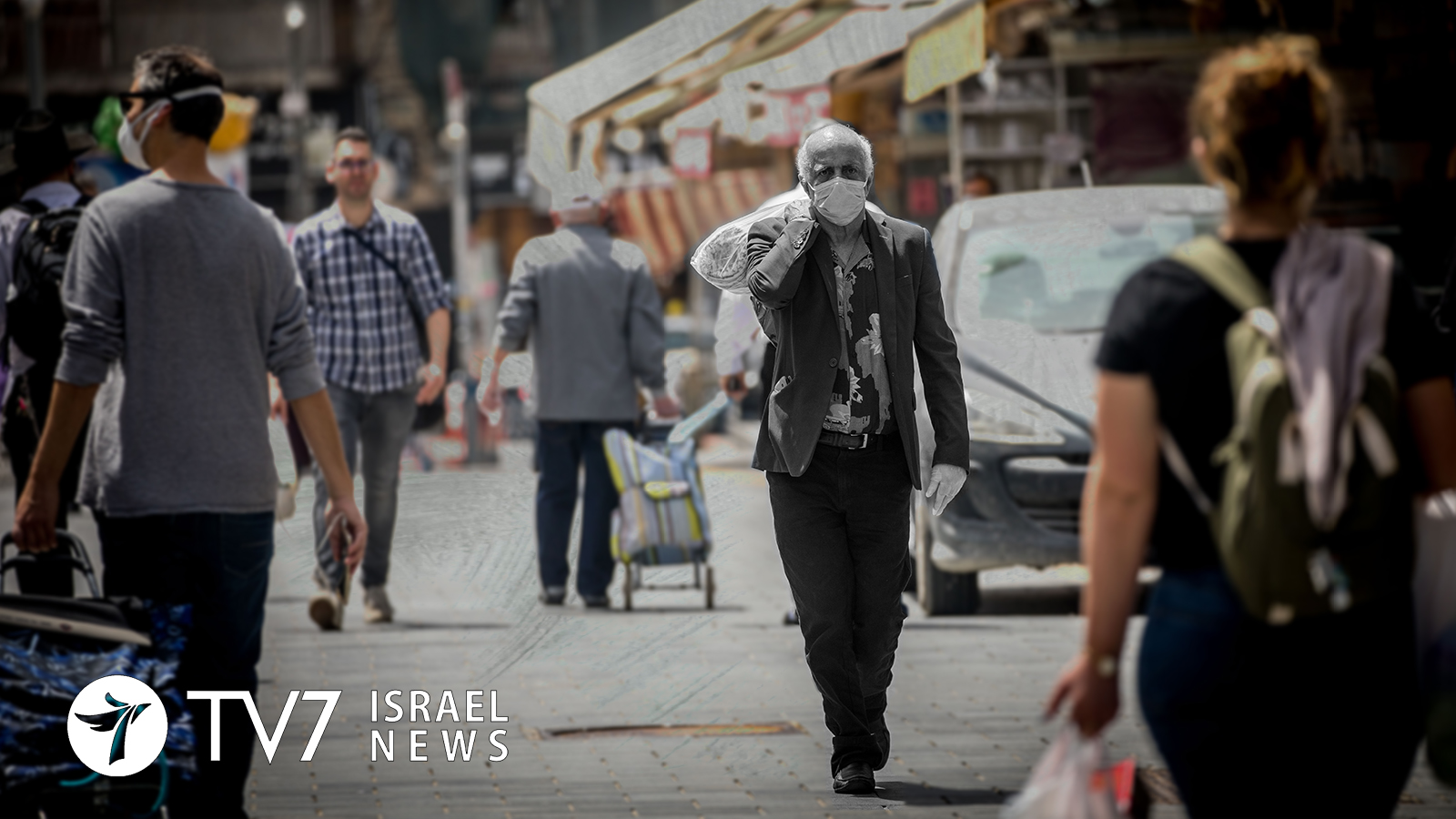Some 905 Israeli coronavirus patients have completely healed from disease over the weekend; as figures provided by the country’s Health Ministry are seemingly show a positive decline in the upward trend of the contagion’s unrelenting spread.
According to the latest-accumulated data, 1,977 additional individuals have tested positive over the weekend, 150 of whom are currently in critical condition. Sadly another 25 individuals have succumbed to the corona-disease since our last reported figure, on Friday, which raises the total number of Israeli victims to 173.
It is important to highlight that the decline is quite evident when comparing figures from the past two weekends. A week prior, the number of newly confirmed carriers was 2,258, 181 of whom were diagnosed in critical condition. This marks a staggering 12.4% decline in the upward trend, within a time frame of a single week. Nevertheless, the reported trend is limited to the figures provided by the Israeli Health Ministry, which systematically delays the publication of the number of tests implemented each day, which affects TV7’s ability to verify the trends of the corona contagion’s spread. Despite repeated requests for updated figures by TV7, according to the last report issued by the Health Ministry April the 17th, 9,950 tests were administered that day.
Due to the apparent decline in the upward trend Israeli Prime Minister Benjamin Netanyahu announced Jerusalem’s decision to alleviate some of the government’ enacted public restrictions that had largely crippled Israel’s economy for the majority of the past month. The Israeli leader explained his ruling saying, “In recent weeks the State of Israel and all countries have been on an extraordinary journey, the goal of which is to ensure health and lives in the shadow of the global corona pandemic. Throughout this journey, we have taken determined and methodical steps to overcome the virus. Thanks to your responsibility, citizens of Israel, thanks to our wonderful medical teams that are on the frontline day and night, and thanks to the timely decisions and steps that we have taken, we have succeeded in this mission up until now.”
The premier further highlighted Israel’s stability in comparison with other members of the organization for Economic Co-operation and Development (OECD). Israel placed sixth out of the OECD’s 34 member states with regard to its coronavirus mortality rate (1.1%); and fifth (from the top) in relation to the general-public’s testing (for the corona contagion) per capita, with 22,870 recorded-tests per every 100,000 Israelis. And while Israel scored very low vis-à-vis the number of doctors, nurses and acute care hospital beds per capita; the Israeli premier underscored the governmental restrictions have been successful in protecting the Jewish state.
The top Israeli official stated “Up until today we have taken a series of steps the main point of which has been to tighten restrictions on movement, contact and the economy. We closed our borders. We initiated mandatory quarantine. We banned gathering in the public sphere. We reduced personnel in places of work. We used digital means to locate people who are sick with corona. We established a testing and procurement network that has grown from week to week. We imposed restrictions on movement and a general lockdown on holidays. We also imposed localized lockdowns in outbreak centers. These steps have proven themselves in slowing the rate of infection and in stabilizing the numbers of seriously ill patients and those on ventilators. They have proven themselves mainly by reducing mortality in comparison to what could have happened. We see this in other countries. In Sweden, which had a lenient policy, there are over 1,000 deaths. In Belgium, which is more or less the same size as us, there are over 5,000 deaths, and so on. These are not pointless comparisons; it is apparent. There are good results here, relatively speaking of course; we would prefer it if there was not a single infection or death, but our good results are enabling us, today, to take steps in the opposite direction.”
Prime Minister Netanyahu went on to list the eased measures that were subsequently approved by the Jerusalem cabinet.
Furthermore, Netanyahu clearified that the decision to restart the Israeli economy remains under review; saying “If, within the next two weeks, we see the positive trend continuing, we will ease additional restrictions. However, if there is an additional outbreak of the coronavirus, we will be compelled to backtrack.” He elaborated by saying “Our indicators for continuing the easing of restrictions are, first and foremost: The continued slowdown in morbidity and the stabilization of the trend regarding the severely ill, so that our health system will continue to function and will not collapse. The key to success is to continue in the same manner with measured and careful decisions and – of course – the continuation of responsible behavior by the public.”
Prime Minister Netanyahu further cautioned of the long-term nature of the battle against COVID-19. “Until a coronavirus vaccine is found, we are in a different reality. The entire world has changed. We simply need to live in a corona routine. Because of this, I am continuing to invest major efforts toward the establishment of an emergency and national unity government that the country needs so much. Nobody wants this more than I do because I have seen the coronavirus galloping toward us and I also know that it is not about to leave us anytime soon. In these conditions, I also know that the country needs a broad and stable government. I am working day and night, literally around the clock, to fight the coronavirus and I saw, and see, an emergency and national unity government as a necessary part of achieving victory in this war.”
